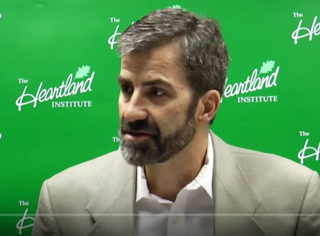A Quote by I. Bernard Cohen
Historians of a generation ago were often shocked by the violence with which scientists rejected the history of their own subject as irrelevant; they could not understand how the members of any academic profession could fail to be intrigued by the study of their own cultural heritage. What these historians did not grasp was that scientists will welcome the history of science only when it has been demonstrated that this discipline can add to our understanding of science itself and thus help to produce, in some sense, better scientists.
Quote Topics
Academic
Add
Any
Been
Better
Could
Cultural
Cultural Heritage
Did
Discipline
Fail
Generation
Grasp
Help
Heritage
Historians
History
History Of Science
How
Intrigued
Irrelevant
Itself
Members
Often
Only
Our
Own
Produce
Profession
Rejected
Science
Scientists
Sense
Shocked
Some
Study
Subject
The History Of
Thus
Understand
Understanding
Violence
Welcome
Were
Which
Will
Related Quotes
One could count on one's fingers the number of scientists throughout the world with a general idea of the history and development of their particular science: there is none who is really competent as regards sciences other than his own. As science forms an indivisible whole, one may say that there are no longer, strictly speaking, scientists, but only drudges doing scientific work.
I don't think any administration, when they come in, thinks that their job is to tell the scientists what the science looks like or to be quiet about the science. Scientists need to remain true and not allow science to be politicized. Scientists are not politicians, and no politician should consider themselves to be a scientist.
More attention to the History of Science is needed, as much by scientists as by historians, and especially by biologists, and this should mean a deliberate attempt to understand the thoughts of the great masters of the past, to see in what circumstances or intellectual milieu their ideas were formed, where they took the wrong turning or stopped short on the right track.
How could two teams of scientists come to such obviously contradictory conclusions on seemingly every point that matters in the debate over global warming? There are many reasons why scientists disagree, the subject, by the way, of an excellent book a couple years ago titled Wrong by David H. Freedman. A big reason is IPCC is producing what academics call "post-normal science" while NIPCC is producing old-fashioned "real science.
The work of science has nothing whatever to do with consensus. Consensus is the business of politics. Science, on the contrary, requires only one investigator who happens to be right, which means that he or she has results that are verifiable by reference to the real world. In science consensus is irrelevant. What is relevant is reproducible results. The greatest scientists in history are great precisely because they broke with the consensus.
The private motives of scientists are not the trend of science. The trend of science is made by the needs of society: navigation before the eighteenth century, manufacture thereafter; and in our age I believe the liberation of personality. Whatever the part which scientists like to act, or for that matter which painters like to dress, science shares the aims of our society just as art does.
Contempt for science could perhaps depend on the fact that, science hasn't been able to solve any of our basic problems, for example the environmental pollution or the problems with HIV and AIDS. This is the worst disease of our time, and scientists are lost. I believe that many people are disappointed with science when the answers we need are not delivered.
Scientists blame the audience for being too stupid, shallow, or lazy to understand. There has been a fascinating debate in the blogosphere lately about communicating science to the public, and it's clear that most scientists just don't get it. They can't be bothered to talk to real people. Nobody will care about your issues if the price they have to pay is listening to a long lecture from Morton the science bug.
How did scientists get money in the past? They were either lucky and independently wealthy, like Darwin, or they had patrons, like Galileo. Universities or governments have become patrons only in the last few generations. Many of the great scientists of the past were in debt to their patrons in the same sense that modern scientists are influenced by what their granting agencies want.
When we just saw that man, I think it was Mr. Myers, talking about how great scientists were, I was thinking to myself the last time any of my relatives saw scientists telling them what to do they were telling them to go to the showers to get gassed. That was horrifying beyond words, and that's where science - in my opinion, this is just an opinion - that's where science leads you.



































